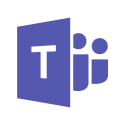
AI-Powered Retrospective: Optimizing Your Agile Practices

In the dynamic world of agile methodologies, retrospective meetings play a crucial role in driving continuous improvement. These meetings allow teams to reflect on past iterations, identify areas for growth, and plan for better outcomes.
However, to truly maximize the benefits of agile practices, optimizing them for better efficiency is essential. That's where AI-powered retrospective meetings come in.
By integrating intelligent insights into the retrospective process, businesses can unlock valuable data-driven decision-making, fueling continuous improvement and propelling their agile practices to new heights.
Understanding AI-Powered Retrospective Meetings
1. Explaining The Integration Of AI In Retrospective
AI-powered Retrospective refers to applying artificial intelligence technologies in conducting retrospectives within agile practices. By leveraging machine learning algorithms and natural language processing techniques, AI enables teams to analyze large volumes of data from various sources, such as team communication platforms, project management tools, and code repositories. This integration allows for a more comprehensive understanding of team dynamics and performance.
2. Discussing The Benefits Of Using AI For Retrospective
The utilization of AI-powered retrospectives brings several advantages to agile practices:
It automates the analysis process, instantly saving time and effort for teams by providing actionable insights.
It enhances objectivity by removing human biases that may hinder accurate evaluations.
AI can uncover patterns and correlations within data that may not be apparent to human observers, leading to deeper insights and more effective improvements.
Examples of AI Technologies in Retrospective
AI technologies commonly employed in retrospectives include sentiment analysis algorithms that evaluate team sentiment based on communication data, topic modeling techniques that identify recurring themes or issues discussed during retrospectives, and recommendation systems that suggest improvement actions based on historical data patterns.
How to Leverage Intelligent Insights For Agile Optimization
Intelligent insights are vital in optimizing agile practices by providing teams with valuable information and actionable recommendations to improve their retrospective process. These insights are derived from analyzing vast amounts of data collected throughout the development cycle, allowing teams to make informed decisions and drive continuous improvement.
By leveraging artificial intelligence technologies, such as machine learning and natural language processing, intelligent insights can extract patterns, identify trends, and detect anomalies that might go unnoticed.
This deep understanding of team dynamics, performance metrics, and project outcomes empowers teams to uncover hidden opportunities for growth and address potential bottlenecks or inefficiencies.
How AI-Driven Insights Can Enhance the Retrospective Process
AI-driven insights have the potential to revolutionize the retrospective process by providing real-time feedback on team performance. By automating the analysis of various data sources, such as communication logs, task completion rates, or code quality metrics, AI algorithms can identify patterns that correlate with successful outcomes or areas for improvement.
These insights enable teams to focus their discussions on specific issues or challenges identified by AI algorithms instead of relying solely on subjective observations. Moreover, AI-powered retrospective tools can facilitate collaboration by suggesting targeted questions or discussion topics based on identified patterns.
3 Critical Components of AI-Powered Retrospective Meetings
Data Collection And Preprocessing Techniques
The first key component of an AI-powered retrospective is efficient data collection and preprocessing techniques. This involves gathering relevant data from various sources, such as team communication platforms, task management tools, and code repositories.
The collected data may include information about completed tasks, team interactions, bugs encountered, and user feedback. Preprocessing techniques are then applied to clean the data and make it suitable for analysis by removing noise or inconsistencies.
Machine Learning Algorithms For Retrospective Meetings
The second essential component is the utilization of machine learning algorithms designed explicitly for retrospective meetings. These algorithms use advanced statistical models to analyze the preprocessed data and identify patterns, trends, or anomalies that may have occurred during the agile development process.
By leveraging these algorithms, AI systems can automatically detect potential issues or areas of improvement that human participants might have otherwise overlooked.
Visualizing And Interpreting AI-Generated Insights
The final crucial aspect is the effective visualization and interpretation of AI-generated insights. After analyzing the data using machine learning algorithms, the results are presented visually, facilitating easy comprehension for agile teams during retrospective meetings.
Visualizations range from simple charts or graphs to more complex representations like heat maps or network diagrams. Natural language processing techniques can also generate textual summaries or recommendations based on the analyzed insights.

By incorporating these key components into an AI-powered retrospective process, teams can optimize their agile practices with intelligent insights derived from extensive data analysis.
3 Best Practices For AI-Powered Retrospective Meetings
When implementing AI in retrospective meetings, it is crucial to follow best practices to ensure its effectiveness and reliability. Here are three essential considerations for optimizing the use of AI in retrospective meetings:
1. Ensuring Data Quality And Reliability
Providing high-quality data can ensure meaningful insights from AI-powered retrospectives. This includes collecting relevant information from team members consistently and accurately. Data should be complete, free from biases or errors, and cover sufficient time to capture trends effectively. Establishing proper data storage and security protocols to maintain confidentiality is also essential.
2. Training And Validating AI Models For Accurate Results
Developing an effective AI model requires training it on relevant historical retrospective data. The model should be regularly updated as new data becomes available. Additionally, validation techniques should be employed to assess the accuracy of the model's predictions against known outcomes or expert judgment.
3. Balancing Human Expertise With AI-Driven Insights
While AI can provide valuable insights, it is vital not to rely solely on its outputs. Human expertise plays a critical role in interpreting the results provided by the AI system.
The Challenges and Limitations of AI-Powered Retrospective Meetings
Addressing Ethical Considerations In AI-Powered Retrospective
Integrating AI technology into agile practices brings forth several ethical considerations that must be addressed. A primary concern is the potential for privacy infringement, as AI-powered retrospectives may involve collecting and analyzing sensitive data from team members. To mitigate this risk, organizations must ensure transparent data handling policies are in place, obtain informed consent from participants, and implement robust security measures to safeguard personal information.
Dealing With Potential Biases In AI Models
In AI-powered retrospectives, businesses must be aware of and address potential biases in AI models. While AI brings immense value to the retrospective process, it is not immune to biases that can impact the accuracy and fairness of its insights. Biases can emerge from various sources, such as biased training data or algorithmic limitations.
Businesses can mitigate biases by implementing robust validation and testing processes, closely monitoring AI model performance, and continuously refining algorithms. By actively addressing potential biases, companies can ensure that their AI retrospectives provide reliable and unbiased insights, fostering a more inclusive and effective decision-making process.
Insights from Team O'clock's AI-Powered Retrospective
Team O'clock already supports a set of AI-Powered features, under the name AI-Assist. Since these features are active for some time already and our customers are using them, we can share some preference information.
Here are the insights from Team O'clock's AI usage on Retrospective based on our data and our client's testimonials:
AI-Assist's Notes Auto-grouping feature groups similar notes from different team members, eliminating the need for manual sorting and making it easier to find relevant information. Our users appreciate this feature and keep using it to save up time.
AI-Assist suggests action items based on the top-voted notes, providing nudges for team discussion and helping to prioritize essential topics. On several occasions users select the suggested action items, often curating further the action item.
AI-Assist generates a summary paragraph of the Retrospective, available in the meeting's timeline entry, team's Slack or Microsoft Teams channel, and shared via email to all team members.
In conclusion, Team O'Clock users have successfully utilized AI-Assist's powerful features in their retrospective meetings. The Notes Auto-grouping feature streamlines organizing and retrieving information, while the suggested action items help teams prioritize and drive meaningful discussions.
Furthermore, the generated summary paragraph provides a comprehensive overview that can be easily accessed and shared, promoting effective communication and alignment among team members. With these AI-powered capabilities, Team O'Clock users have experienced enhanced productivity and collaboration in retrospectives.
Future Trends and Implications of AI-Powered Retrospective Meetings
The future trends and implications of using AI-powered retrospective meetings in Agile practices are promising. Firstly, experts expect AI to impact agile ceremonies significantly, revolutionizing the way team conduct retrospectives. With natural language processing and machine learning advancements, AI can analyze vast amounts of data, identify patterns, and provide valuable insights, enabling teams to make data-driven decisions and continuously improve their processes.
However, this evolving landscape also brings potential challenges and opportunities. Challenges arise in terms of data privacy, algorithmic biases, and the need for human oversight. On the other hand, the opportunities lie in leveraging AI to automate routine tasks, enhance collaboration, and unlock new levels of productivity and innovation in agile practices.
As AI evolves, organizations must navigate emerging challenges while harnessing AI's immense potential to drive continuous improvement and success in agile methodologies.
Takeaway
Embracing the power of AI is the key to optimizing your agile practices. By integrating AI-powered retrospective analysis, you unlock intelligent insights and data-driven decision-making.
With machine learning and natural language processing, you gain a deep understanding of team dynamics, uncover patterns, and drive continuous improvement. Imagine saving time, enhancing objectivity, and discovering hidden growth opportunities.
You can revolutionize your agile processes by following best practices, addressing ethical considerations, and refining AI models. Join the ranks of successful teams leveraging AI, and embrace its potential to streamline workflows, enhance collaboration, and achieve new levels of success in your agile practices. Take advantage of the transformative benefits the AI features of Team O'clock have to offer!







